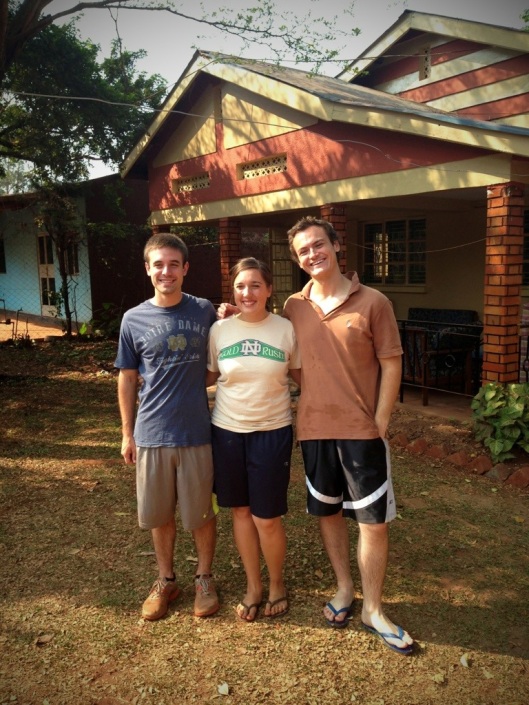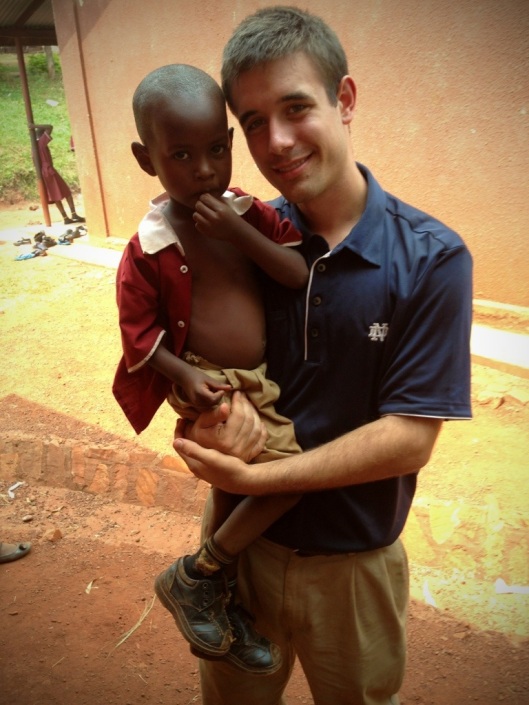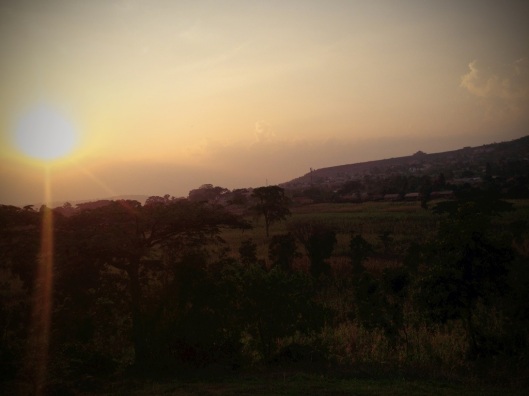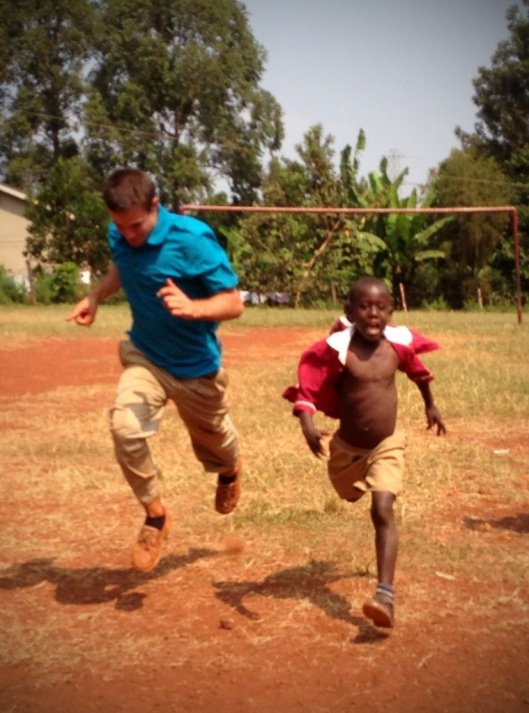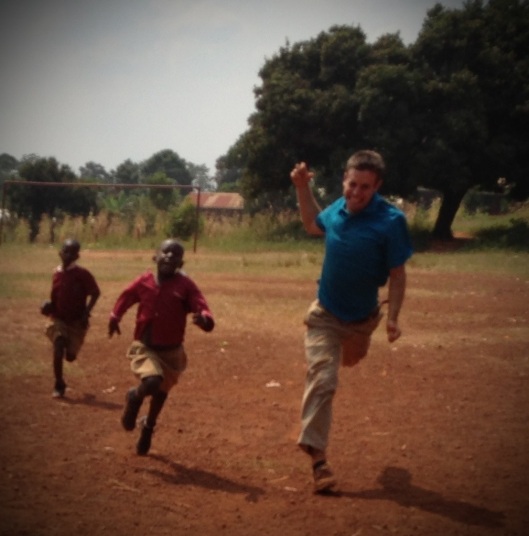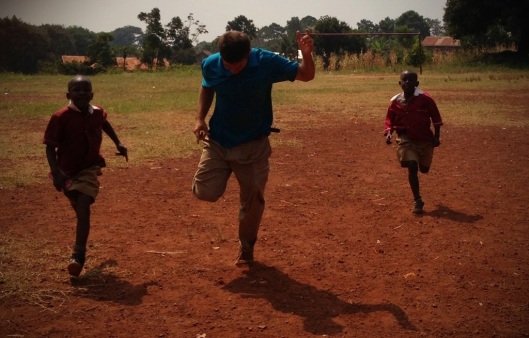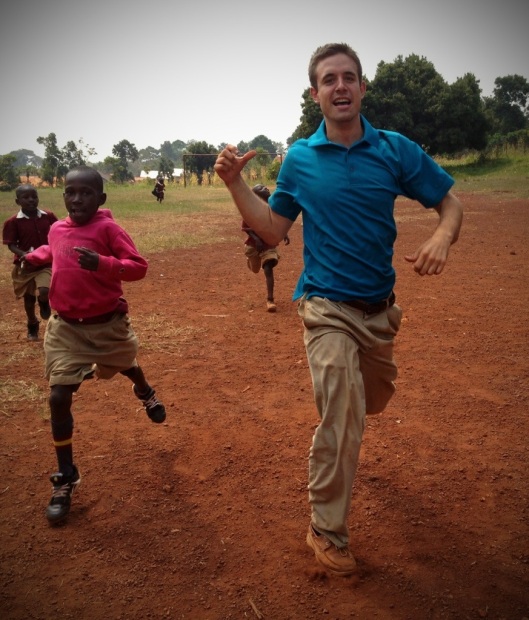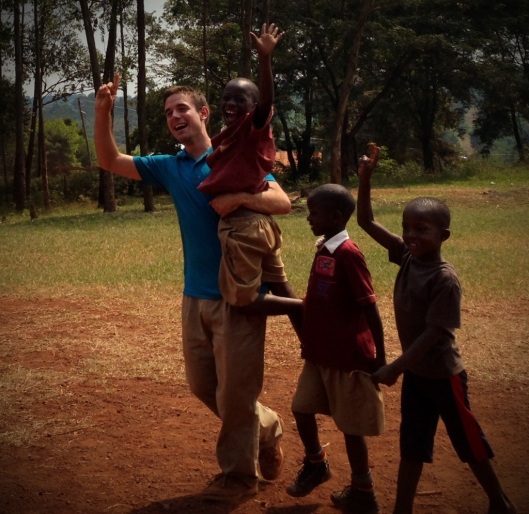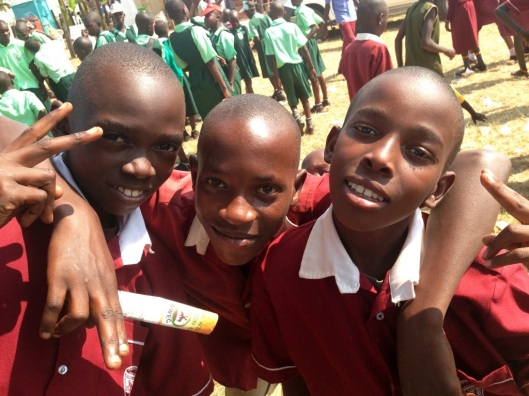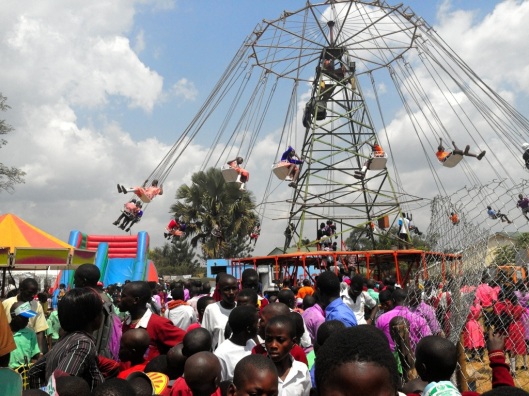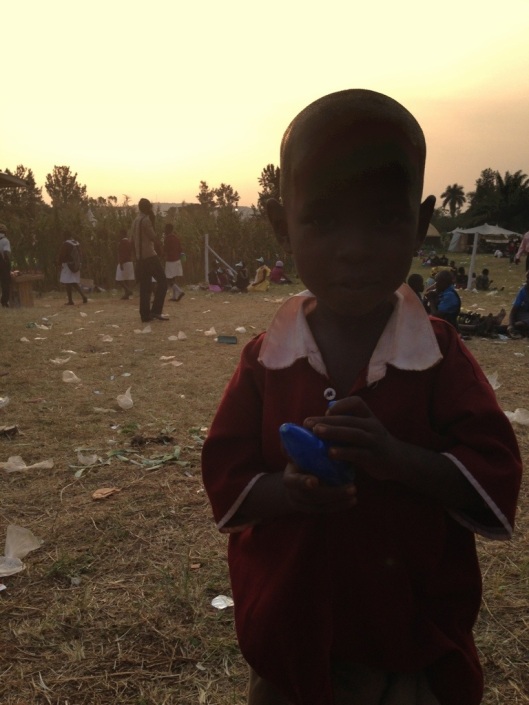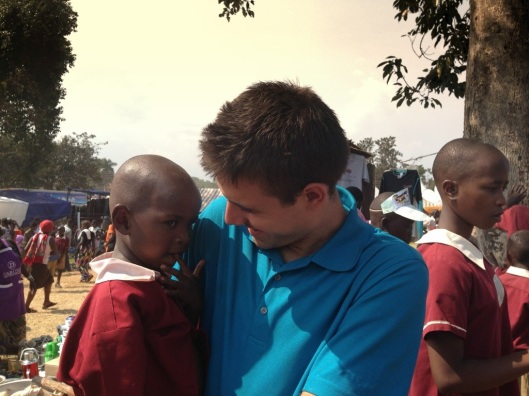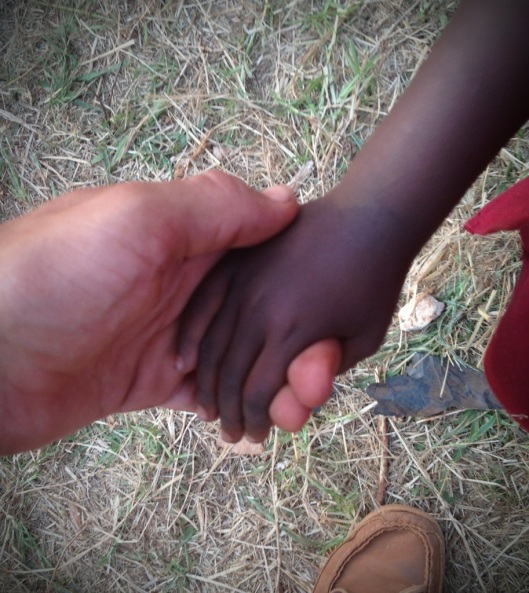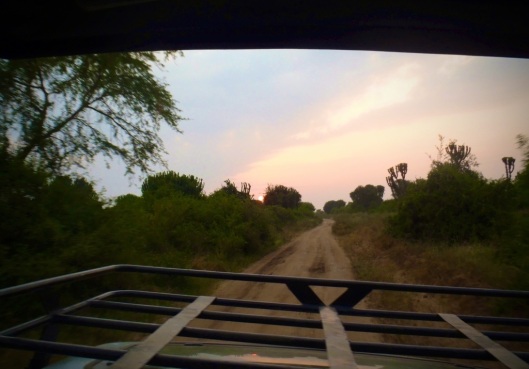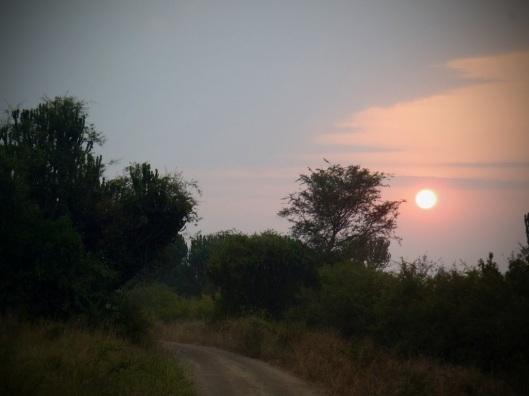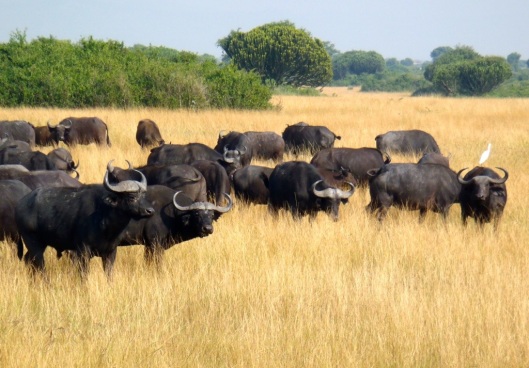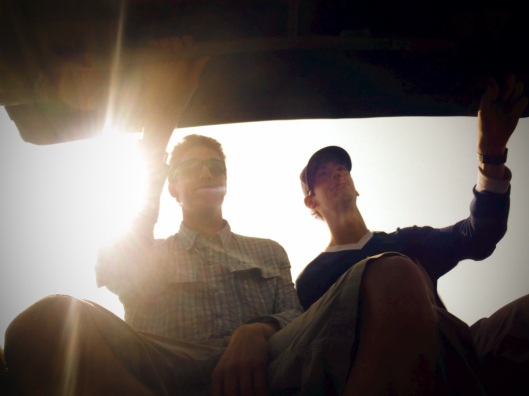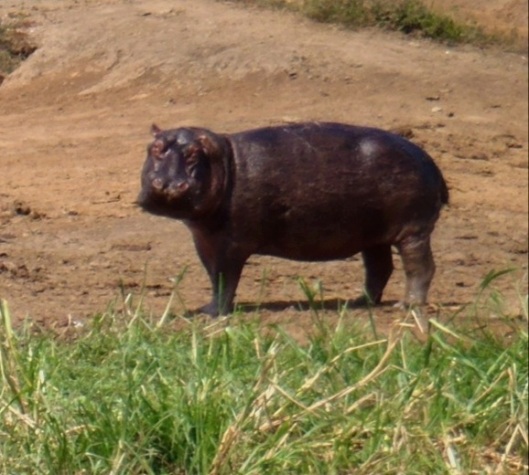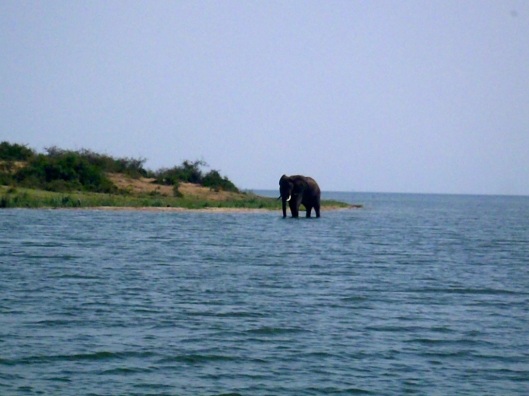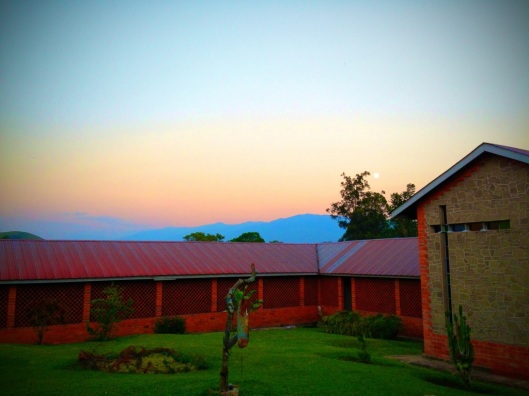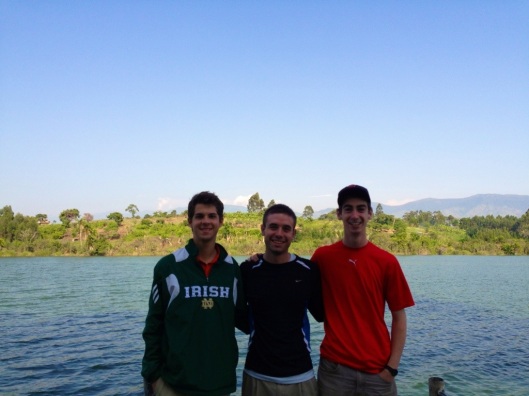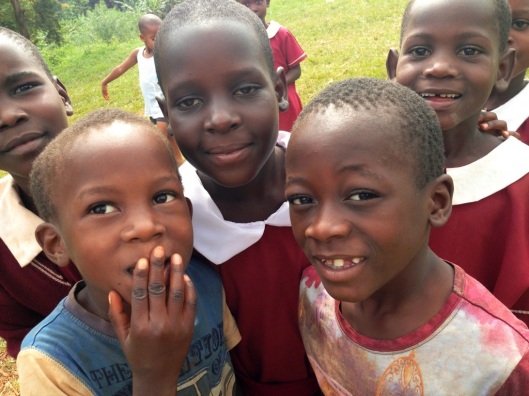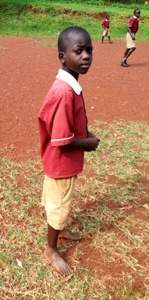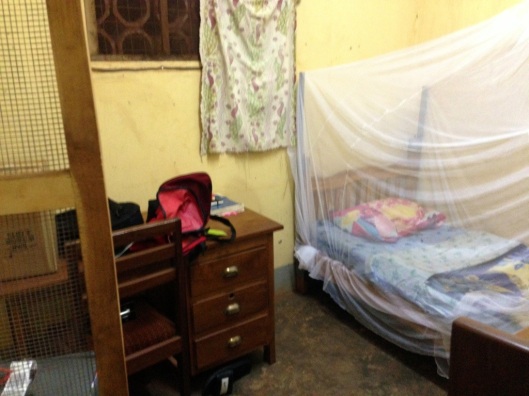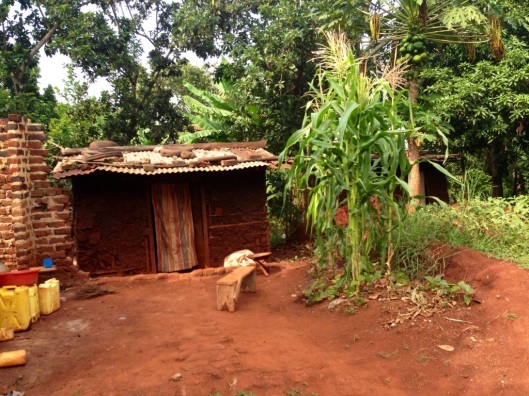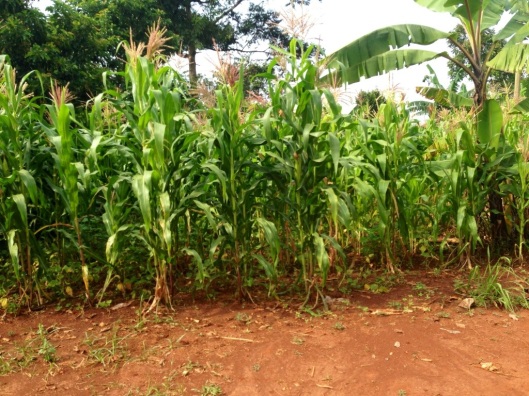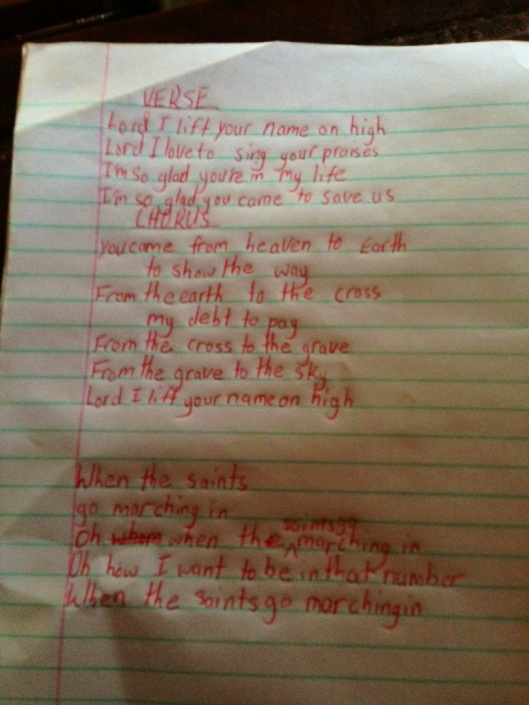As a white person walks down the dusty roads surrounding Jinja-town, he or she can’t escape a series of greetings from the children along the way.
“Mzungu bye bye!” they chant, a routine cry of joy and excitement. (“Mzungu” means “wanderer” and is now used for “white person” now.)
The children drop their improvised toys, stand up from their mountains of dirt, and sometimes even emerge from a bath just to greet the white person passing by. The littlest of the children even boldly stand and attempt to shout it, often mixing up the syllables as they try to join in with their older siblings.
That’s the chant I heard every time I walked the roads to and from school in Uganda. And it’s what echoes in my mind now as I board a plane home from this experience.
In preparing to go, I’ve heard reference to going “back to the real world” a couple of times. I have to disagree with that terminology. Because if a world that trades connectivity for communication and productivity for relationship is more “real” than Uganda, something’s not right.
Even though I was here for only a brief time as a foreigner, this country welcomed me into their culture with open arms. And I jumped right in. I struggled, then I adapted, and now I’m leaving. Though saying goodbye was painful, I should instead focus on some of the things I’m welcoming into my life:
First, a newfound love of research – I love to ask questions, and I’m fascinated by the stories of others. Channeling those passions through research has quickly become addicting. Each conversation I have feels like a painter illustrating another part of the master picture. And Uganda was an interesting place to begin my work. Even though the lax attitude towards time made my interview schedule difficult to follow (a 10 am appointment would turn into a 2 pm), the willingness of the locals to engage in conversation greatly made up for it.
A wider lens on life – there’s something to being educated about another way of life. It’s something else to tour that place. It’s a whole other thing to try to live it. I’m so thankful to my hosts for including me in their community and to the seminarians across the street for their friendship.
Appreciation for simplicity – day to day life forced me to slow down and survive with less. It was also the smallest things that provided the happiest of moments. One of my favorite memories: I created shakers (instruments made out of a plastic bottle filled with rice or beans that you shake to the beat) for my students because they have no instruments at their school. I doubted myself, thinking it was too simple to be meaningful. But then I handed one to a student and watched him go wild with it – shaking it to the best, dancing with giddiness, and laughing his head off. I ended up making 25 of those shakers. A simple start for a school with no instruments. But a start nonetheless.
These are just a few takeaways that living in Uganda has provided. Though it was uncomfortable, I’m only beginning to see its rewards. And that’s why I decided to give this crazy idea a chance. This trip challenged me by targeting a lot of my weak spots. That was a challenge I wanted to tackle, and I couldn’t have accomplished anything here without the help of those around me.
And that’s my biggest takeaway – the rich relationships I developed here. Indeed because this process was so enlightening and communal, saying goodbye was that much harder.
St. Jude primary school performed a going away program for Brian and me with each class performing a dance or song or poem. I couldn’t have picked a better way to end my last school day. Yet it the quiet pleadings of one-on-one goodbyes with the students that made me realized how hard leaving would be.
One of my favorite students came to the house to visit after my last day of school. We sat on the front porch talking. She’d joke and say she needed to get headed home, but she was clearly trying to stay as long as she could. To the point that it was getting too dark for her to walk home. I began to escort her back. Part of the way to her home, she stopped walking. And I recognized her pain. Walking meant going home and me leaving for America and an education that would demand my time and attention.
I had no choice but to take her on a boda (similar to a motorcycle) to her home. A final goodbye, tears, and then a silent walk back to my home beneath the huge Ugandan sky. I knew that somewhere an ocean away my family was looking up at the same sky and waiting for me to come home. But all I could think about St. Jude’s that night and how far away they’d feel once I returned home.
Going into the trip, I was worried about how little these people would have. After experiencing relationship here, I’m leaving blown away by just how much they have in each other. So as I head back home, I reflect on how this trip was a lot of things – most of which are hard to explain. But undoubtedly, it was the biggest adventure of my life.
I’m not sure if it gets more “real” than that.

